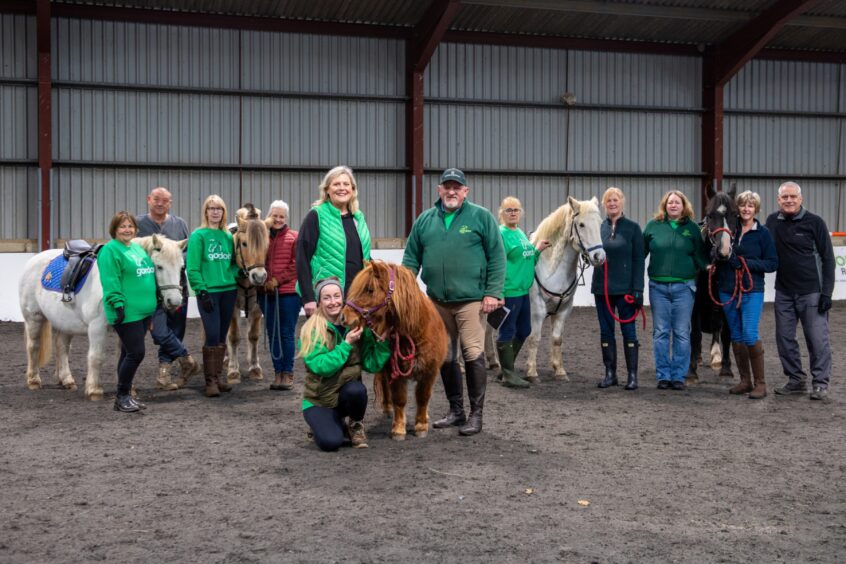
Animals have a healing ability, and in Aberdeenshire a small group of horses have been working their magic to help others.
The Gordon Riding for the Disabled Association and Inverurie Therapy Pony Centre has around 70 volunteers – and they are the backbone of the charity.
Based at Tweeddale, near Inverurie, it’s a place which clearly means a lot to those going along, both for the volunteers, and those attending its sessions.
Across the UK the Riding for the Disabled Association, which started in 1969, has more than 400 groups.
The Gordon group is working to improve the lives and make a difference to people who have physical or intellectual challenges, or mental health difficulties. This year sees a special milestone for the group as it celebrates its 50th year – and work has been ongoing to build on the activities it offers beyond riding sessions.
Your Life visited their base at Tweeddale and caught up with chairperson Fiona Pearson, as well as meeting coach Ian Duncan and other volunteers.
‘Incredible’ support from volunteers
Fiona wasted no time in taking us to the stables and introducing us to the stars of the show: Harry, who has an impressive moustache, Harvey, Juno, Jack, and Laddie, who is on loan to them.
Also in the stables was Patch, who was purchased in October having previously been on loan, and Tony, a 21-year-old Norwegian Fjord pony, who by the looks of his mane, never has a bad hair day!
Fiona, who took over as chairperson in October 2022, tells me many of their horses are older – in their late teens and early 20s, which is old for horses. More recently, Gemma, the mini Shetland pony, was brought in on loan. Gemma, who will turn four this year, will not be used for ridden sessions, but for unmounted therapy sessions.
In December the group bought Clara, who is six years old; she is currently in training, but will eventually join the others for ridden sessions, meaning one of the older horses can be retired.
The centre runs ridden sessions from Monday to Thursday, the lessons last for 30 minutes with up to five participants in each one. The horses have a weight limit of 12.5 stones which they can take.
Fiona tells us the centre’s volunteers, some of whom have been devoting their time to the group for several years, are an “incredible support”.
‘They just know’
Having horses which are approaching retirement is challenging, and finding the right one for the job can be tricky.
Fiona explains they need ponies with the right temperament who are suited to working with people who have disabilities. She said: “They’ve got to be very quiet, they’ve got to be non-reactive to a lot of noise.
“The ponies generally are very, very good – they just know, that’s the wonderful thing about animals, they just know. Because they’re just so in tune with their riders and their handlers they know they’ve got to be really, really quiet.”
The Gordon association, which started in the 1970s, has been based at Tweeddale, on the Keithhall estate, for around 20 years.
‘The ponies are the therapists’
However, the group has been working to expand its scope and it’s not just ridden sessions it provides, with non-ridden activities such as stable management and Equine Facilitated Learning – a form of learning therapy – taking place on Fridays. It’s also been hosting experiences, such as tea with the ponies.
Also among the work being done at Tweeddale is the building of a sensory trail – an ongoing project, which can be used by walkers, wheelchair users and RDA riders. Fiona shows us round the the trail area, which is set in the surrounding woodlands.
Last year also saw the addition of a sensory room and toilet block, which was funded by Omexom.
The group holds events throughout the year to fundraise. Among the things it has been fundraising for more recently is fencing for the sensory trail.
But ongoing costs such as hay and additional feed for the horses in winter, and even supplements, can see costs add up – and annually it costs around £50,000 to run the Gordon group.
Work to develop the non-ridden activities will continue and the group wants more people to have the chance to enjoy the therapeutic benefits of the horses, with Fiona saying: “We truly believe that the ponies are the therapists.
‘Trying to offer more’
“We’re trying to offer so many more things. I think that’s really important. Some people maybe can’t ride because of the ponies’ weight limit, also some of them don’t want to ride.
“So that’s why we’re doing stable management courses, EFL – and we also run tea with the ponies, which is really great.
She added: “We hope that everybody who comes here feels welcomed, they feel relaxed and happy and enjoy it, and whether it’s getting on a pony or walking down the sensory trail, or coming into the sensory room to chill. I think it just means different things and it can be used in lots of different ways.
‘It’s boosted his confidence’
On the day of our visit the centre is a hive of activity, with sessions for children and young adults due to take place. Watching them in the arena of the riding school, the rapport between the riders and the ponies is clear.
“It really touches your heart to see their faces,” Fiona tells me, and she’s right, it does.
Among those who arrived for a lesson was Joe Campbell, who turned 21 in December. Joe, who is partially sighted, has been going along to lessons at Tweeddale since last summer, his carer Gail Stewart says.
Every week Joe, from Peterhead, rides Harry; and Gail, who suggested to Joe’s parents that it might be a good option for him, says the lessons are something he looks forward to.
She said: “He absolutely loves it. It’s massively boosted his confidence – without a doubt, he looks forward to coming up each week. He speaks about it non-stop all week and he loves the staff.
“Joe is partially sighted but that doesn’t affect his ability to manage as well as anybody else on the horses.
‘I welled up a bit’
“He did horse riding at school, and then stopped, obviously, with getting older and leaving school. I suggested to his mum horse riding might be a good option for Joe, because he enjoyed it so much when he was at school.
“We tried and got space here, and at first he was a bit unsure about coming up, but over the weeks and the months, it’s just made a huge difference to him.
Gail said at first Joe was nervous as it had been a while since he had been on a horse, however he overcame this, she said: “Within minutes of him speaking to Ian building up his confidence and getting him on to the horse – the first time I saw him I welled up a bit.
“Because I look after Joe, you see him as part of your family, so it’s quite a big thing to see a little bit of independence, and being able to do these things.”
‘A busy place’
Among the coaches is Ian Duncan, who has previously been a competition rider as well as training horses. He became involved with Gordon RDA, firstly as a member, and latterly as a coach having gained his coaching certificate during Covid, after he retired from his work as an engineer five years ago.
And he is relishing volunteering, saying: “The horses were in my blood, so I decided to come in and help. Coaching is something I’ve done since I was 18.
“I’ve coached riders from complete beginners, never been on a horse before, to Scottish team dressage and Scottish team eventing, I’ve taught riders right through that band.”
The riding lessons Ian coaches are on a Tuesday morning, but he also does stable management on a Friday as well as sessions of EFL.
He said: “It’s quite a busy place here. With the EFL work it’s non-ridden, but it’s more about the pony showing them their personalities. Maybe they’re a bit loud, and the ponies are just very quick to show them that.
“Or they’re very cuddly and the ponies will actually snuffle into them. And as they grow in confidence and go quiet the ponies talk horse talk to them and show them that that’s good, so the children or adults pick up on that.”
‘You just get this bond with the horse’
Deirdre Hunter is among those who have been helped by going along to sessions at Tweeddale. She was diagnosed with MS in 1999, but prior to that had taken horse riding lessons.
When Deirdre lost the use of her legs and her right arm, she stopped riding. Over the years, after physio, she regained some mobility and was looking to restart. However, she ended up in hospital, had two blood clots and needed surgery to save her right leg.
Deirdre told me: “When I came out of that I was more determined than ever to get on a horse.”
She contacted RDA, and got started in March. She added: “They were so good, so welcoming.”
Deirdre wears a caliper on her right leg, and there is a special platform which is used to help her on to the horse – Jack.
The 58-year-old said: “It’s actually been the most amazing experience. It’s been a healing experience. To be with a horse, it’s as though the horse actually feels how you’re feeling. You just get this bond with the horse.”
‘A good feeling’
Deirdre, of Westhill, who is married to David, also has fibromyalgia and osteoarthritis. She goes along to Tweeddale once a fortnight for half an hour.
She explains that the RDA match the horse to the person – and speaking of Jack, she said: “I went out and I met Jack – and I fell in love. So I’ve got two men in the life, I’ve got my husband and I’ve got Jack!”
“It’s good because you’re having physiotherapy, but in a fun way. And having the connection with the horse, you just get a good feeling.”
Deirdre says that no matter how bad her days have been and no matter how much pain she’s been in, once she is there and riding, it is forgotten.
She said: “At the end I feel happier; sore, but I, like others that go, feel you’ve accomplished something that others may take for granted.
‘A very special place’
“It’s been a learning curve. It’s a very special place. These volunteers, they do it just for the sheer joy of sharing the joy of ponies with people with disabilities.”
Deirdre wanted to do something to help the charity. And last summer she completed a 3,000ft glider flight – something which had been on her bucket list – in aid of the Gordon RDA, raising £775.
She said: “Ever since I started with Gordon RDA, I realised how much it costs to run the place and to feed the ponies. So I decided to make it into a fundraiser.”
Speaking on the experience which took place at Aboyne airfield, she said: “It was phenomenal to be up at three and a half thousand feet in something that doesn’t have an engine!”
To support Gordon RDA or to find out more about the group go to gordonrda.org



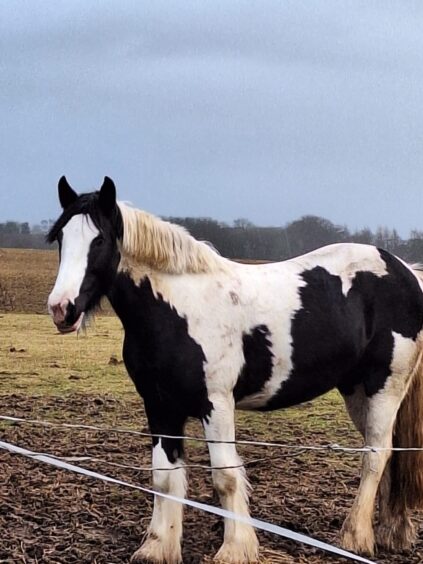

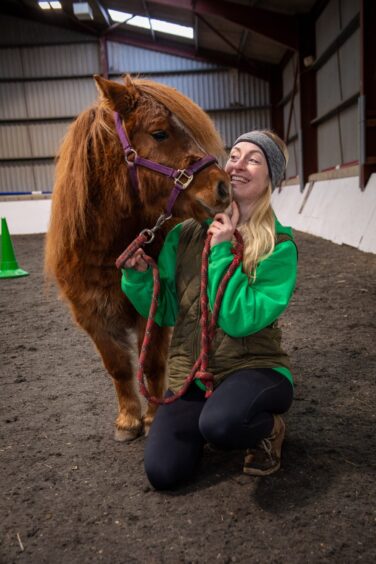
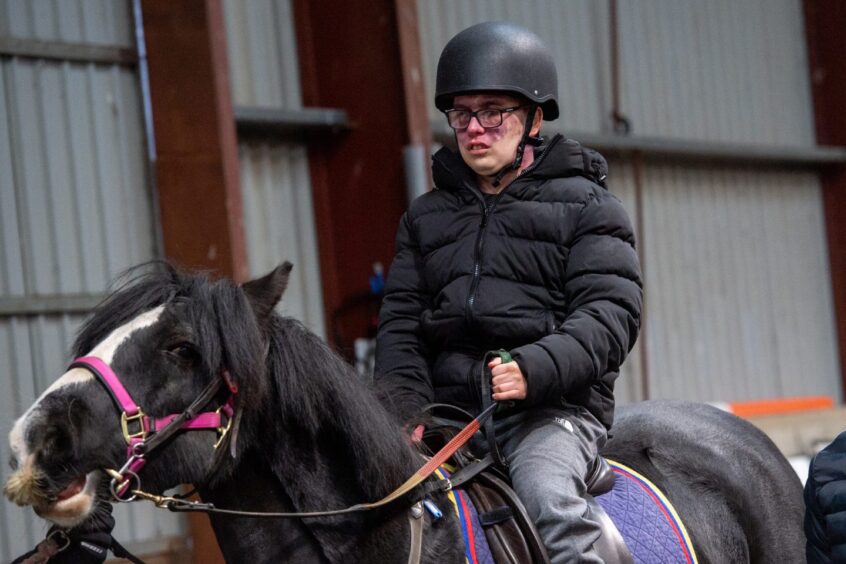
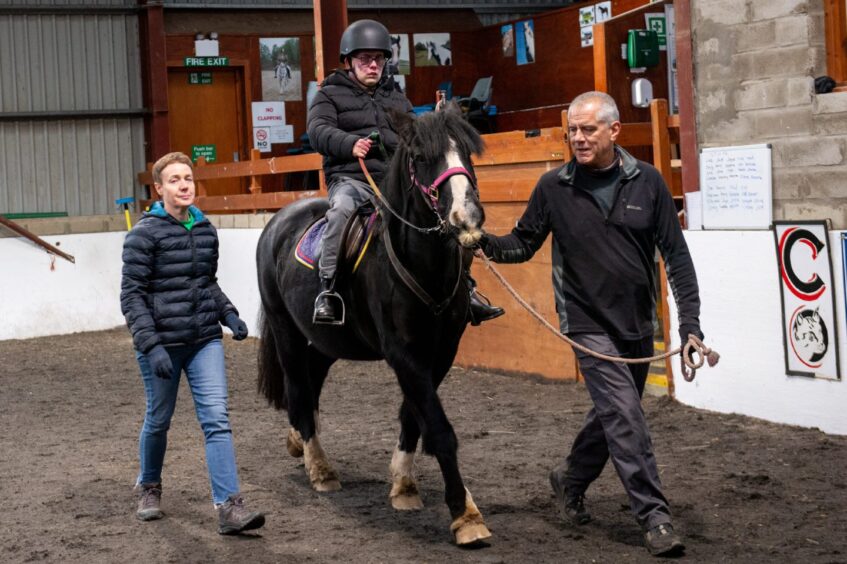
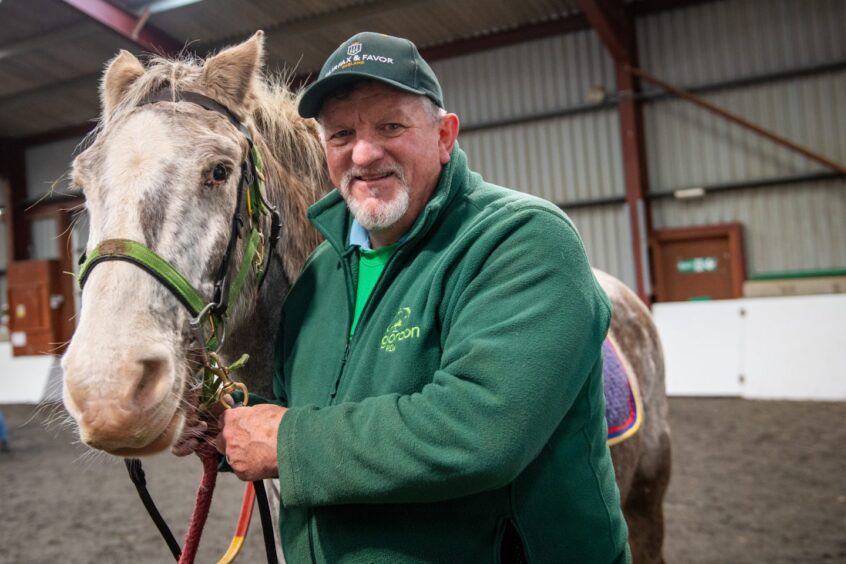
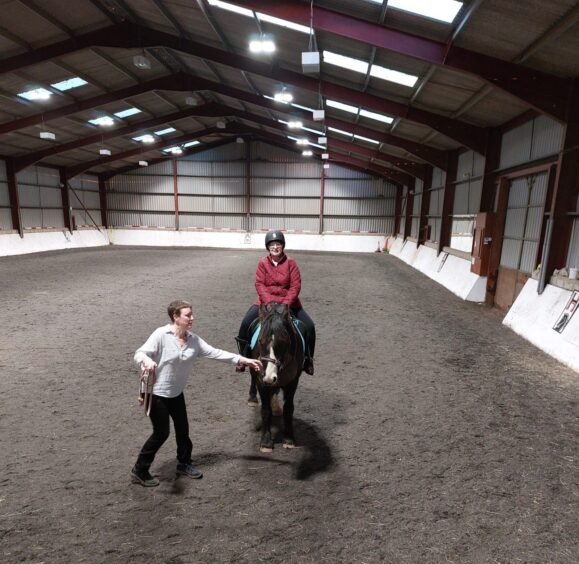
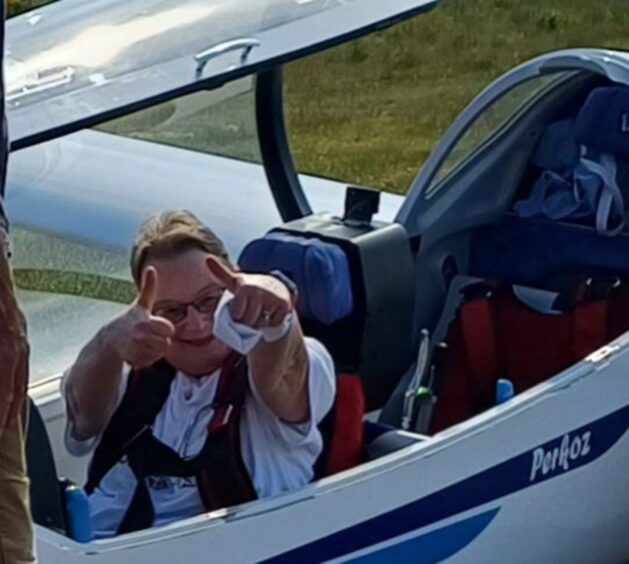
Conversation